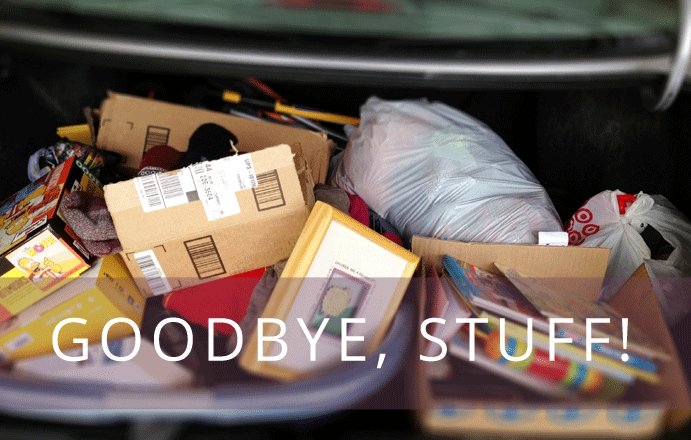Yale Study Finds This Daily Habit Is Hurting Your Brain


You don’t have to be a complete hoarder to be affected by the clutter in your life. Reducing your ‘stuff’ can make you more productive, less stressed, and boost creativity. The old saying ‘less is more’ has never been more true.
In fact, researchers at Yale University recently identified two areas in the brain associated with pain, the anterior cingulate cortex and insula, which light up in response to letting go of items you own and feel a connection to. This is a secret that retailers don’t want you to know, and why stores like Apple have their products out for you to touch and feel.
One study showed that consumers who picked up and held a simple coffee mug were willing to pay 60% more for the item if they held it for a longer period of time. We literally get ‘attached’ to things, and the more we’ve spent on them or touched them and held them, the harder it is to let go. It literally hurts the brain the same way you get a physical pain – like a paper cut of a rough elbow to the chest – to let go of something you are attached to.
The more you’ve committed emotionally or financially to an item, the more you want to keep it around, but this isn’t good for you – not your physical health, your mental vitality, or even your emotional well being.
Want more proof? UCLA researchers recently observed 32 Los Angeles families and found that all of the mothers’ stress hormones spiked during the time they spent considering their belongings.
It isn’t just that pile of papers on your desk, the closet full of stuff you never use, or the garage that hasn’t been organized since 1974. Files on your computer, or notifications on Facebook or Twitter also account for ‘clutter’ that takes your energy and causes your brain to feel overloaded.
Read: Take These 10 Small Steps Right Now to Feel Better
When there is too much clutter in your life, you have difficulty switching from one task to another, you often do the same task twice, you have difficulty filtering important information, and your memory is negatively affected.
Think you couldn’t possibly downsize? TreeHugger founder Graham Hill, traded in his million-dollar mansion for a 420 square foot apartment that only has the bare essentials. His kitchen consists of 12 salad bowls and only the utensils he really needs. He has never been happier.
There are plenty of ways to de-clutter, from giving things to Goodwill, taking things to a recycling center, or even turning your ‘trash’ into cash on Ebay or Craigslist. Take old magazine and books to Half Price Books or other resellers, and find a new home for old clothes that you don’t wear anymore by having a ‘clothing swap’ party with friends. You can also stop all those mail order catalogs from being delivered (while saving tons of trees in the process) by visiting catalogchoice.org, and removing your name from mailing lists.
Finally, de-cluttering might be as simple as getting rid of anything that doesn’t really add value to your life. If it isn’t beautiful, functional, or have its own dedicated space in your home, it might be time to let it go.
